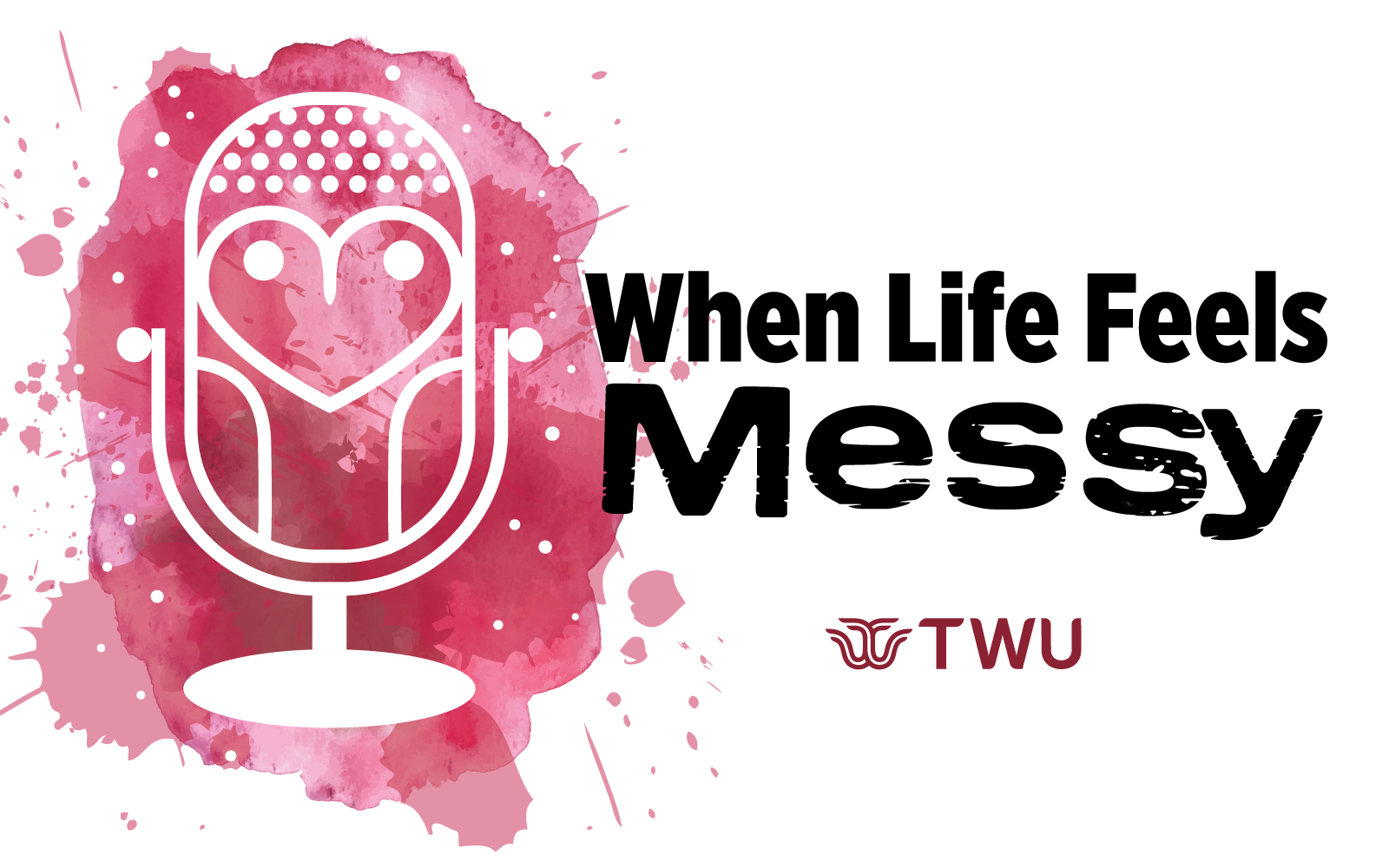September 2025: When Your Inner Critic Sounds Like a Drill Sergeant: Silencing the Negative Self-Talk
“You’re not smart enough to be here.”
“You made a mistake? Unacceptable. You should have done better.”
“Everyone else gets this faster than you.”
“If you don’t get straight A’s, you’re a disappointment."
Sound familiar? Many of us carry around this negative “inner critic” that consistently tells us we aren’t “enough”. The inner critic is the internal voice that criticizes, judges, and pressures you - often more harshly than anyone else would. This is why the common phrase is “you are your own worst critic”.
This voice might feel like it’s “motivating” you, but the reality is that our inner critic most often makes you feel ashamed, guilty, and unworthy, rather than encouraging growth. We see this a lot in college, as this is the breeding ground for self-criticism. With balancing academics, social life, finances, and figuring out who you are as a person, it makes sense that the “inner critic's” voice shouts louder and louder. Some common ways we see this is:
- Academic Pressures - having high expectations (sometimes unrealistic) of self, being in competitive and rigorous programs, and battling perfectionism
- Social Comparison - keeping tabs on peers successes, achievements, etc. and comparing self to them
- Independence & Identity - navigating and exploring adulthood, finding out who you are/what’s important to you, and learning responsibility
- Family/Cultural Expectations - carrying pressure and expectations to succeed or pursue certain careers or financial pressures to be successful and take care of family
Something we hear a lot is the fear that if we don’t listen to the “inner critic” then we won’t be successful, disciplined, or motivated to complete our goals. But let’s really look at the reality of this constant self-criticism and its long-term effects. Over time, this takes an emotional, cognitive, and behavioral toll on us that can contribute to burnout, depression, feelings of hopelessness, and sabotaging our ability to actually accomplish our goals. It increases our anxieties, stress, shame, overthinking/ruminations, procrastination, isolation, and avoidance of challenges, while making it very hard to focus and find motivation to move forward. Now does that sound like the “inner critic" voice is actually working for you? The answer is no (even if your brain tried to gaslight you right then into saying yes).
So what can we do to start silencing this “inner critic”? Well, let’s first start with the reality that 1. It won’t change overnight and 2. You can’t always make it fully disappear, but instead can learn to turn down the volume and respond in different ways. Here are some ways to start shifting the narrative:
- Increase Your Awareness - Notice and label this voice; maybe give it a funny name or something that identifies it as separate from you
- Example: Catching yourself thinking “You’re lazy and worthless” and pausing to name it, instead of accepting it as fact.
- Pause & Reframe- Ask yourself, “Is this thought true? Is it helpful?” and replace these critical statements with more neutral and positive reframes
- Example: Reframe “If you don’t ace this exam, you’re a failure” with “One grade doesn’t define me. I can still succeed overall.”
- Self-Compassion - Treat yourself like you’d treat a close friend, because odds are you are way more understanding, empathetic, kind, and lenient with others that you are with yourself. Remember, you are not the exception to the rule and deserve this same compassion as you would give another person.
- Example: If your best friend said, “I messed up an assignment,” you wouldn’t bark, “You’re a disaster!” - you’d say, “It happens, you’ll figure it out.”
Want some practical tools to try? See if any of these feel helping in turning down the volume on your “inner critic”:
- Journaling prompts: Write down one negative thought, then reframe it as if you were speaking to a friend. Remember, the reframe doesn’t have to be overly positive, but can just be neutral and realistic. Our inner critic likes to go to the worst-case scenario and extreme negative-thinking, so even moving to a neutral lens can be very helpful..
- Example: “I’m never going to get this degree” → “Earning a degree is challenging, but I’m making progress step by step.”
- Affirmations: Create simple statements that focus on effort and growth.
- Example: “I am capable of learning at my own pace.”
- Grounding exercises: Slow breathing, mindfulness, or guided imagery to calm the mind when the critic is shouting.
- You can use this resource for a full list of various strategies and exercises to try: https://www.drunkenbuddha.net/nervous-system-regulation-toolkit#ground
- Supportive coach voice practice: Write or record encouraging phrases you’d want to hear—then play them back when needed.
- Use campus resources: CAPS services, peer groups, tutoring, and academic coaching exist because no one is meant to do college alone.
Remember, just because your “inner critic” is loud and shouting, doesn’t mean it’s right. You don’t have to follow it’s commands and in fact, it serves us better to actually challenge this voice rather than lean into it. By noticing when it shows up, challenging its harsh messages, and replacing them with a kinder, more balanced voice, you can build resilience and confidence. College is already tough and you deserve a supportive coach in your corner, not a critic tearing you down.
Take care, Pioneers!
TWU CAPS


Comments
Post a Comment